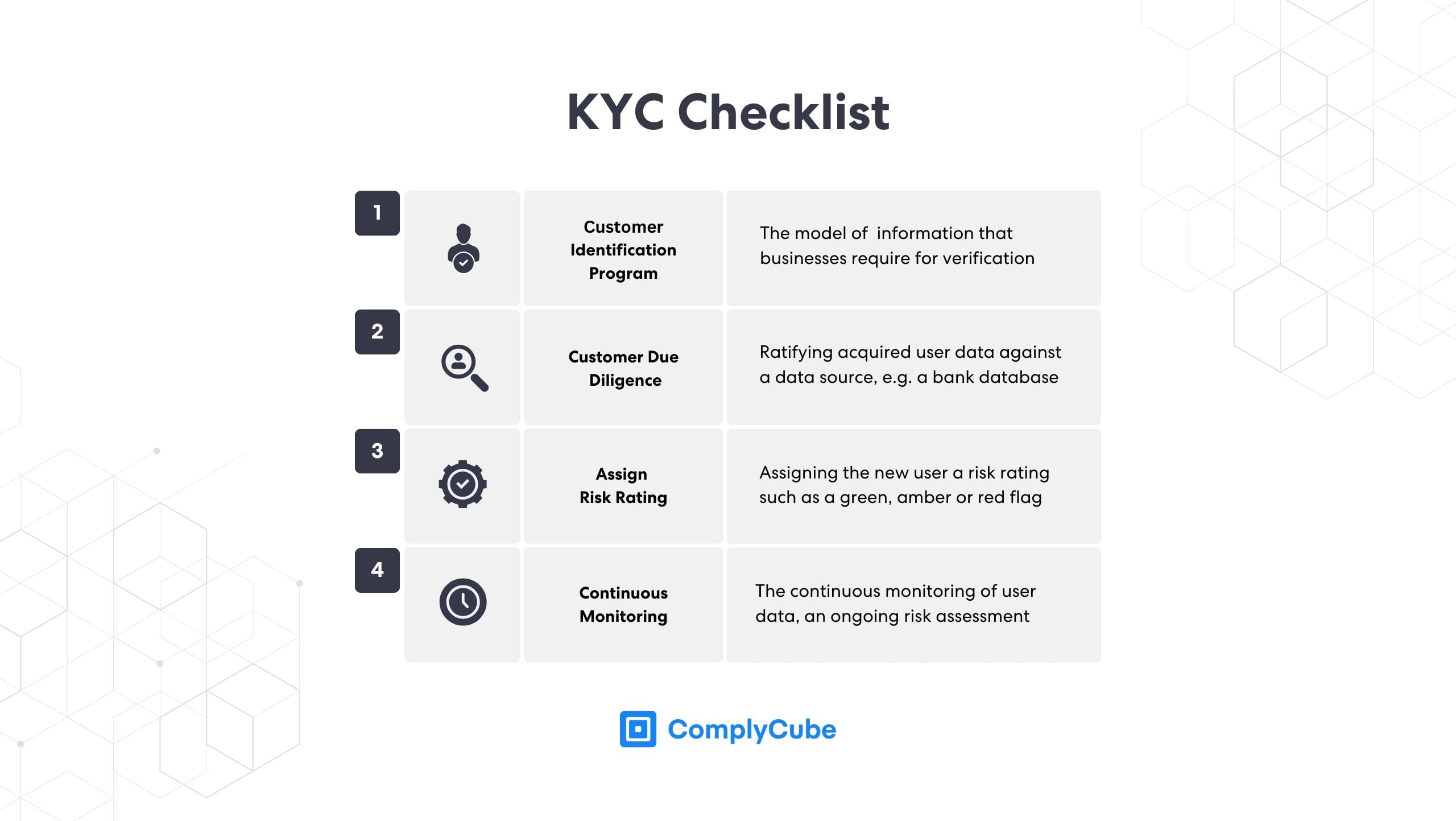Operating and using a no KYC crypto exchange brings a myriad of substantial risks to both the platform’s users and its operators. As AML crypto regulations are becoming more holistic worldwide, crypto KYC procedures will become more prominent throughout the industry.
Many crypto exchanges have still not integrated an Anti-Money Laundering (AML) and Know Your Customer (KYC) strategy into their compliance and operational stack, making them non-compliant with many global crypto regulations. This guide explains why no KYC crypto exchanges can pose serious threats to both their users and their founders.
What is a No KYC Crypto Exchange?
Operating a crypto exchange without a KYC program makes the exchange extremely accessible to both regular users who want to use the platform innocently and bad actors who want to use it maliciously. Crypto exchanges without a KYC strategy can quickly attract a vast and extremely broad user base. The absence of KYC ultimately denotes the lack of regulatory compliance in the exchange’s operations.
What do Crypto KYC Procedures Achieve?
KYC in the cryptocurrency industry establishes who users are upon signup and continuously monitors their profiles. This ensures they do not pose a threat to the exchange’s compliance with national and international regulatory bodies.
So, if KYC processes are designed to safeguard the industry from both a user and Virtual Asset Service Provider (VASP) perspective, why would exchanges not implement one? This is a nuanced question. The cryptocurrency industry is one that was established on anonymity and privacy, with the ability to transact anonymously being the primary use case.
Therefore, certain crypto exchanges do not require a KYC process for users to trade on their platform. This allows users to trade under the industry’s core principle of anonymity. The issue this brings about, however, is that the lack of a KYC process increases the capacity for users to mask the origins of funds. This attracts bad actors, such as money launderers, to their exchange.
This makes no KYC exchanges a prime target for malicious financial activity. For more information on what a crypto KYC process involves and its purpose, read How KYC Crypto Regulations Safeguard the Industry.

Dangers for Crypto Exchanges
Anti-Money Laundering regulatory bodies, including the Financial Crimes Enforcement Network (FinCEN) in America, the Financial Action Task Force (FATF) globally, and related policies such as the Bank Secrecy Act (BSA) are instrumental in regulating financial institutions.
In early 2024, the FATF posted a status update on how well various regions had implemented Recommendation 16 – the Crypto Travel Rule. This came ahead of its expected Mutual Evaluation report scheduled for 2025. These kinds of reports play a pivotal role in generating transparency throughout the industry.
The 5th Round of Mutual Evaluations should deliver a comprehensive study of how all FATF member regions have implemented multiple policies. For the cryptocurrency industry, this could be a regulatory watershed moment.
Dangers of a No KYC Crypto Exchange for Users
Crypto exchanges that do not make use of a KYC program are typically unregulated. While this does not make them an immediately dangerous place to trade, it is certainly more threatening than using other regulated exchanges with a rigorous KYC and AML program.
These exchanges, while more accessible and anonymous, can play host to a range of negative trends.
Users are more vulnerable to scams and Ponzi schemes endorsed by the exchange. As the platform is unregulated and the operators potentially not doxxed (known publicly), the likelihood of money being directly or indirectly stolen is much higher.
This also increases the likelihood of the exchange blocking user funds. Centralized Exchanges (CEXs) are in full control of the funds you deposit. While your funds are on the platform, you are not technically the owner of them.
Users will likely trade with lower liquidity, causing price volatility and market manipulation. Unregulated exchanges do not need to provide the same liquidity that regulated exchanges do. Therefore, big funds, known as whales, can cause huge volatility and manipulate the price of tokens.
These exchanges will not be transparent about their solvency, in essence, the value of the funds they possess (what they do with user deposits). In particularly volatile periods, many users will want to withdraw funds sporadically and immediately.
Finally, regarding issues of disputes, regulated platforms provide seamless and around-the-clock customer service. Smaller, unregulated exchanges will not supply this, and fund disputes are likely to be lost by the user.

Smaller, unregulated crypto exchanges are known for accessibility and anonymity but come at the price of user security. Regulated exchanges, such as BitGet, have a responsibility to protect their users, as evidenced by their solvency and Proof of Reserve documentation.
Cryptocurrency exchanges must be solvent to ensure everyone can withdraw their funds when they want to. Insolvency and the misuse of user funds were the leading factors behind the fall of the FTX crypto exchange, which was illegally swapping user funds with its sibling institution, Alameda Research.
As global crypto regulations become more holistic and the Travel Rule’s ‘sunrise issue’ begins to subside, Know Your Customer processes will become more paramount to the success of the industry, and the the prevalence of non-KYC crypto exchanges will likely decrease.
Crypto Anti-Money Laundering Regulators
VASPs and crypto firms are more commonly perceived as and, therefore, regulated in a similar way to traditional financial services. In January 2024, the EU confirmed that cryptocurrency exchanges should be held just as accountable as banks in safeguarding the financial system.
This involves a crypto exchange identifying customers with a rigorous Identity Verification process (IDV), which is the beginning of a KYC cycle. Not complying with global regulations as set out by the FATF, as well as local and federal regulations, can result in significant non-compliant fines.
Most recently, these have been charges of AML breaches; the FATF’s Recommendation 16 is designed to improve the global interoperability of data between VASPs to aid in Anti-Money Laundering measures. For more information on this, read The Crypto Travel Rule.
Hong Kong Cryptocurrency Regulators
Hong Kong is rapidly becoming a hotspot for cryptocurrency adoption. In June 2023, the Securities and Futures Commission (SFC) in Hong Kong introduced a new regulatory framework for all VASPs operating a crypto trading platform. This new set of regulatory standards firmly aligns with the FATF’s Recommendation 16, and thus, the region can be seen to be compliant with the Travel Rule as of June 2023.
The SFC’s new framework, the ‘Guideline on Anti-Money Laundering and Counter Financing of Terrorism (For Licensed Corporations and SFC-licensed Virtual Asset Service Providers),’ will likely catalyze the region’s progress into a crypto heavyweight and, thus, restore its status as a financial hub.
Singapore Crypto Policies
The Monetary Authority of Singapore (MAS) published a framework for the implementation of the Travel Rule in 2019. This framework, named PSN02, came into effect in late January 2020 and incorporated the cryptocurrency industry into its legislation.
While Singapore was one of the early global movers to regulate the cryptocurrency industry, it has not launched a new framework for some time, such as the SFC’s Guidelines. This could count against the region in the short term as rival regions look to capitalize on the fast-expanding industry and become more ‘crypto-ready‘.

The Importance of AML and KYC
It’s well noted that the cryptocurrency market is exposed to some of the highest money laundering risks. Their anonymity at scale, as well as being superfluous of financial intermediaries, makes them a prime target for malicious financial transactions.
Integrating KYC crypto measures is essential for cryptocurrency exchanges to mitigate financial crime. A common misconception regarding Know Your Customer is that the process simply hinges solely on Identity Verification (IDV).
Robust KYC processes go much further than just identifying a user. Modern AML and KYC programs provide an all-in-one service for adhering to evolving international guidelines. They are pivotal in determining which accounts’ crypto transactions need monitoring and offering transaction monitoring as a service.
VASP Compliance
Platforms like SDK.finance offer a game-changer for developers building compliant crypto spending apps. SDK.finance provides a ready-made backend infrastructure specifically designed for payment applications, such as crypto. This software not only saves developers valuable time and resources but also streamlines the integration of KYC/AML providers.
To fulfill KYC requirements, a VASP should:
Establish a Customer Identification Program.
Request data from and perform the necessary Customer Due Diligence (CDD) on users.
Assign a suitable risk rating to the new user.
Continuously monitor their profiles to ensure customer risk levels remain tolerable.

What Does the Future Look Like for Crypto Assets?
As the crypto industry expands and regulatory systems tighten, integrating stringent KYC and AML protocols becomes critical for both centralized platforms as well as decentralized applications (dApps). These include Decentralized Exchanges (DEXs), unhosted and private wallets, and many others.
Ensuring compliance with these measures is essential to meeting federal regulations, managing legal challenges, and upholding the legal expectations set for most cryptocurrency exchanges. KYC in crypto is, therefore, integral to the continued development and adoption of blockchain technology and its various use cases.
No KYC Crypto Exchange vs Regulated VASPs
Exchanges employing KYC processes ensure compliance with KYC regulations, reducing risks of financial crimes and terrorist financing. They align with global standards, enhancing user trust and regulatory approval.
In contrast, non-KYC exchanges face significant risks, including scams and regulatory penalties, which can undermine their operation and customer confidence. The future outlook for non-KYC crypto exchanges appears challenging as regulatory frameworks tighten worldwide, pushing for enhanced KYC compliance.
Cryptocurrency exchanges will need to adopt stringent AML and KYC measures to ensure their continued operation. ComplyCube stands at the critical conjunction between secure operations and regulatory adherence.
The AML, KYC, and IDV services provide industry-leading solutions that help exchanges meet the dynamic KYC regulations and safeguard their operations. This ensures that VASPs can remain competitive in a hotly competitive field. If your crypto platform, VASP, or related enterprise requires a compliance solution, get in touch with a regulatory expert today.



